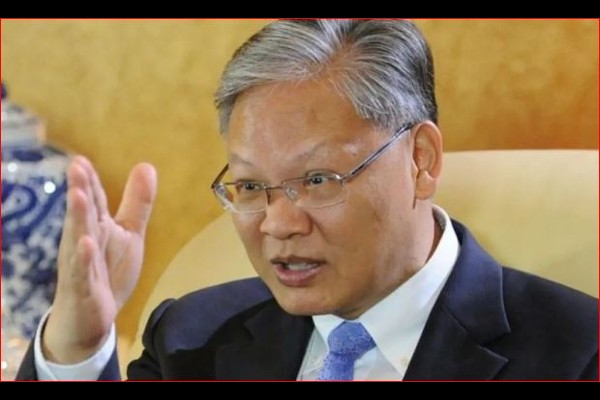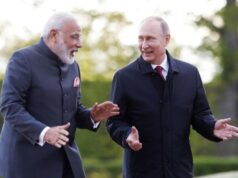A PTI report says China’s President Xi Jinping has appointed an ambassador to India 17 months after the last one left at the end of his tenure. The PTI report described Xu Feihong as a senior diplomat who had earlier served as ambassador in Romania and Afghanistan. He has not served in India at any time in the past.
Does this suggest China is softening its stance since the Galwan attacks and the subsequent military standoff? Lt Gen SL Narasimhan, China scholar and former military attache in Beijing, told StratNews Global there is a desire for improved relations. The same he said, was expressed by a visiting academic delegation from Shanghai recently.
But he cautions against reading too much into it and pointed to External Affairs Minister Jaishankar’s remarks two days ago on the subject of China, where he said, “Previous Indian governments had even put Chinese interests ahead of our own. Today the answer is no, we will not let them dictate the play. There will be costs and consequences.”
Jayadeva Ranade of the Centre for China Analysis & Strategy, echoed that view, arguing that Xu Feihong’s appointment had been doing the rounds in Beijing for some time. That he is not an “India hand” is of little consequence, he said. He dismissed the view that the non-appointment of an ambassador was a diplomatic slight by Beijing given that India has an ambassador there.
“India currently has no ambassador in the US,” he pointed out and for quite some time there was no US ambassador in Delhi.
Sriparna Pathak, associate professor of China Studies at Jindal Global University, says the new appointment coincides with the end of the tenure of the current No.2 in the Chinese embassy in Delhi. But there could be something larger, she told StratNews Global.
“President Xi Jinping after his summit last year with President Biden, knows that the US ship has sailed and it’s not coming back. His current swing through Europe is a desire to shore up that end and something similar can be read into his appointment of an ambassador to India.”
Pathak believes that Xi anticipates tougher days ahead and given the number of fires triggered largely as a result of his own policies, seems to have decided that India is one fire he could do without. This does not mean Xi is going to open up to India, he will do only the minimum necessary, such as the appointment of an ambassador, and perhaps even send Foreign Minister Wang Yi to Delhi to make some soothing noises.
“At the appropriate time he will stab India in the back again,” she said, underscoring the widespread view that China cannot be trusted.
It’s a view that was articulated by Jaishankar at a roundtable organized by the Economic Times recently. He rejected the view of the previous UPA government that “On a whole lot of issues we can make common cause with China,” and recalled the fundamental misreading of how to handle China in the 1950s, this was the Panchsheel era and “Hindi Chini bhai bhai”.
“It stared the nation in the face in 1962. Please read Nehru’s letter to (President) Kennedy after Bomdi La fell (to Chinese forces) and tell me how you feel about that. How could our country have been brought down to such a situation where you are begging somebody.”
Jaishankar also made it clear that national security demanded that India protect the interests of its industry from predatory Chinese practices that heavily subsidized their exports.
“Every country today has the right to manage sensitive sectors in consonance with national security. I cannot in the name of an open economy, open up my national security to work with a country which is laying claim to my territory. Both our economic and national security are at stake.”
Thirty eight years in journalism, widely travelled, history buff with a preference for Old Monk Rum. Current interest/focus spans China, Technology and Trade. Recent reads: Steven Colls Directorate S and Alexander Frater's Chasing the Monsoon. Netflix/Prime video junkie. Loves animal videos on Facebook. Reluctant tweeter.





